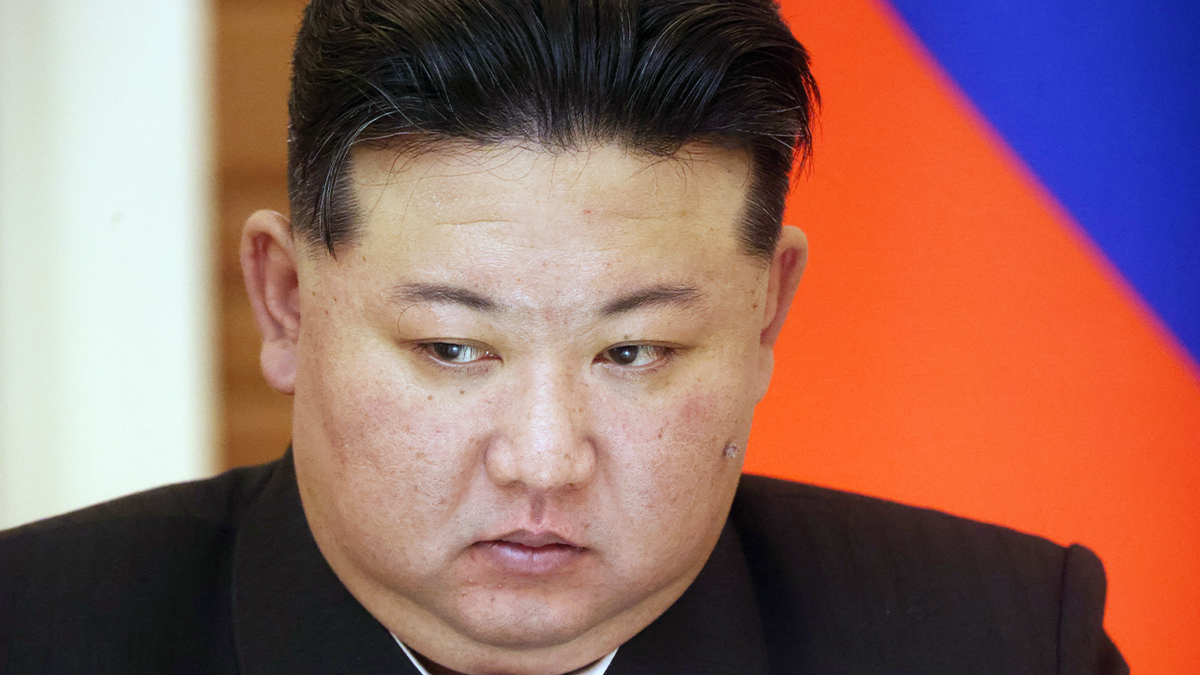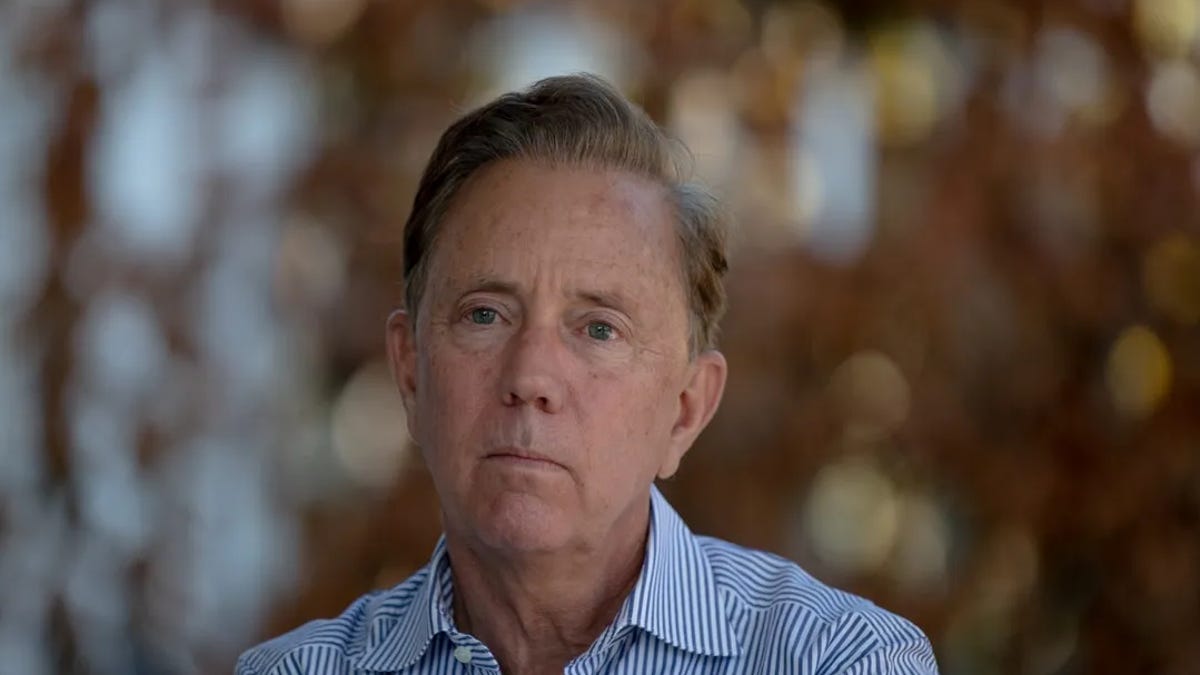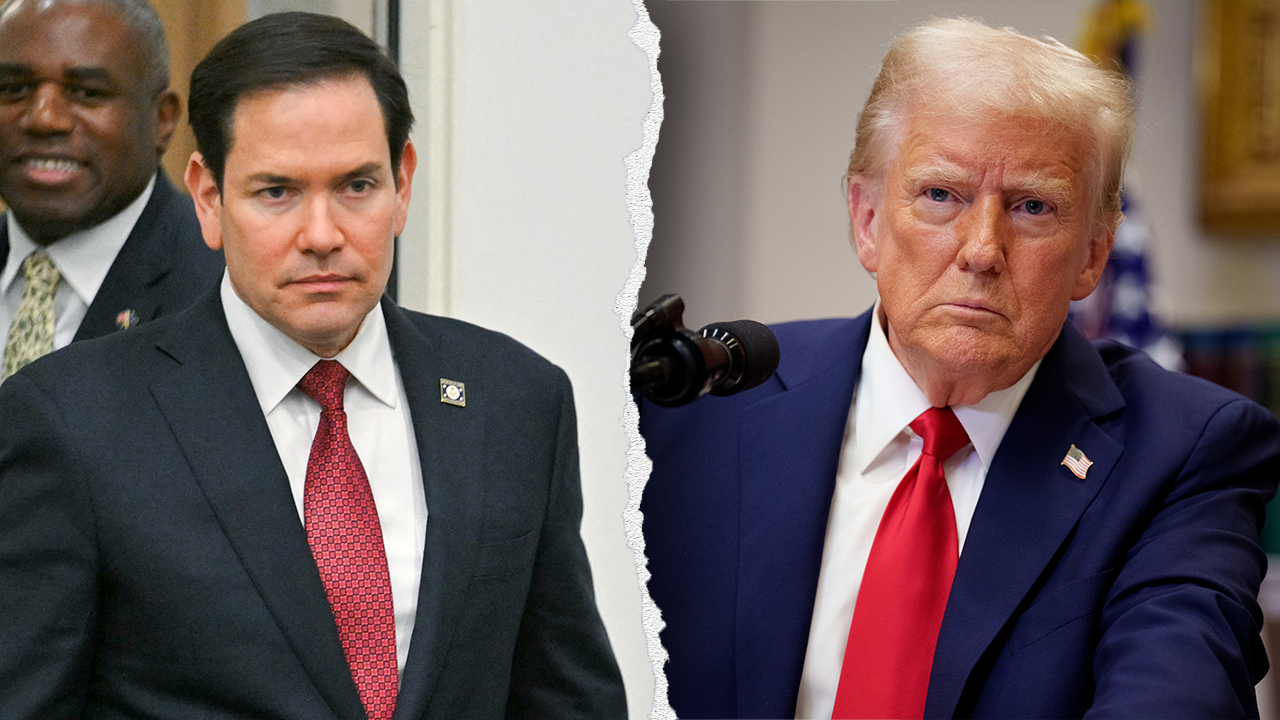World
Australian judge rules in civil court war crime allegations against hero soldier proved

SYDNEY (AP) — Australia’s most decorated living war veteran unlawfully killed prisoners and committed other war crimes in Afghanistan, a judge ruled Thursday in dismissing the claims by Victoria Cross recipient Ben Roberts-Smith that he was defamed by media.
Federal Court judge Anthony Besanko ruled that the articles published in 2018 were substantially true about a number of war crimes committed by Roberts-Smith, a former Special Air Service Regiment corporal who now is a media company executive.
These allegations included that Roberts-Smith, who was also awarded the Medal of Gallantry for his Afghan war service, killed a prisoner who had a prosthetic leg by firing a machine gun into the man’s back in 2009.
He kept the man’s prosthetic as a novelty beer drinking vessel.
The accusations also included Roberts-Smith had kicked an unarmed, handcuffed farmer off a cliff into a riverbed where an SAS colleague shot the farmer dead in 2012.
Reports of domestic violence allegedly committed by Roberts-Smith were found to be unproven and defamatory. But the judge found this would not have further damaged the veteran’s reputation.
Roberts-Smith had made claims of defamation against The Sydney Morning Herald, The Age and The Canberra Times over their articles.
His lawyer Arthur Moses asked for 42 days to consider lodging an appeal to the Full Bench of the Federal Court.
Roberts-Smith’s legal costs have been underwritten by billionaire Kerry Stokes, executive chairman of Seven West Media where Roberts-Smith is employed.
Roberts-Smith is one of several Australian military personnel under investigation from Australian Federal Police for alleged war crimes in Afghanistan.
The first criminal charge for an alleged illegal killing in Afghanistan was made in March. Former SAS trooper Oliver Schulz was charged with the war crime of murder in the death of an Afghan who was shot in 2012 in a wheat field in Uruzgan province.

World
Cade Cunningham Gains $45 Million From All-NBA Honors

The Detroit Pistons won a playoff game this season for the first time since 2008, back when Antonio McDyess led the team in scoring against Kevin Garnett’s Boston Celtics. While the Pistons posted their best attendance numbers in 16 years amid a dramatic business turnaround, the franchise isn’t the only party to benefit financially.
Point guard Cade Cunningham was rewarded with a 2025 All-NBA Third-Team honor Friday, which comes with a $45 million pay raise.
The No. 1 overall pick in the 2021 NBA Draft signed a rookie contract extension last summer that was due to be worth at least 25% of the salary cap (five years, $224 million), with the potential to increase to 30% of the cap (five years, $269 million) if he made an All-NBA team this year.
This type of deal structure dates to the 2011 collective bargaining agreement (CBA), and specifically the “Derrick Rose Rule” (officially named the “5th year, 30% max criteria”). The clause allows a player to re-sign with his current team to earn a salary greater than the typical maximum starting in his fifth season if at least one among a list of criteria is met. One of those criteria is being named to an All-NBA team in the most recent season.
Another way to ink that bonus is to win Defensive Player of the Year (DPOY), which was done by Cleveland Cavaliers forward Evan Mobley, who was selected two picks after Cunningham in 2021. Mobley was also named to an All-NBA team, but he had already locked up his money by winning DPOY.
Bonuses like these are always good for players, but not necessarily so for teams. Cleveland, which is already due to pay the luxury tax next season, might be forced to lose a role player such as Sam Merrill or Ty Jerome after allocating additional millions of dollars to Mobley. Detroit, on the other hand, with at least $10 million in cap space according to Spotrac, is probably happy to pay its franchise player what he’s worth.
Cunningham averaged career highs across the board, with 26.1 points per game (ninth in NBA), 9.1 assists per game (fourth in NBA) and 6.1 rebounds per game. He was also a finalist for Most Improved Player award, which does not carry any financial weight.
Perhaps more impressive than Cunningham’s individual numbers was his impact on the team. The Pistons went 44-38 in the regular season, an improvement of 29 wins over last season and the sixth-largest single-season increase ever. The five teams with bigger turnarounds did so by adding the following players by trade, free agency, or the draft: Garnett, Tim Duncan, David Robinson, Steve Nash and Larry Bird. The 2025 Pistons, on the other hand, added Tobias Harris and Malik Beasley—two well-traveled veterans who have never made an All-Star or All-NBA squad.
Cunningham earned his bag, but some players with money on the line did not. The Memphis Grizzlies’ Jaren Jackson Jr., for instance, did not make an All-NBA team this season, which would have made him eligible for a five-year “supermax” extension worth roughly $345 million. Typically, players cannot sign deals worth more than 30% of the cap until the start of their 10th season, but All-NBA status allows players to secure a salary worth 35% of the cap before their eighth or ninth season.
Jackson Jr.’s snub also puts the Grizzlies in a pickle. They can now only offer him a typical “veteran extension” instead of a max contract this summer, meaning their All-Star big man may choose to become an unrestricted free agent in 2026 and try to get a bigger paycheck at that point.
ESPN reporter Brian Windhorst, along with many other voters, has been transparent about the fact that, in the case of a tie, he’ll vote for a player who’s eligible for a raise. “Evan Mobley and Jaren Jackson are both guys who, if they make All-NBA, they get the bonus,” Windhorst said on The Bill Simmons Podcast in April. “I have a rule that if you’re close [and there’s money at stake], I put you on. I did this with Jaylen Brown two years ago.”
The initial idea behind the system in place was to reward the league’s extraordinary young players with higher wages. The problematic effect is that the votes of 100 potentially biased members of the media can cause significant salary changes for a few players every season.
Ultimately, though, the players agreed to this status quo when they signed the CBA, and a better alternative isn’t clear.
“The players don’t trust the owners. The owners don’t trust the players. The players can’t be trusted to pick the other players. The fans can’t be trusted at all,” Windhorst said. “So is the media perfect? Hell no. But we’re the best of the options.”
(This story has been updated in the sixth paragraph to correct Detroit’s available salary cap space number.)
World
Satellite images reveal North Korea's mangled naval destroyer after failed launch

Satellite imagery captured what remained of a mangled 5,000-ton North Korean naval destroyer damaged during its launch ceremony this week, leaving the country’s dictator distraught.
A photo captured by Maxar Technologies of the northeastern port of Chongjin, shows the ship apparently twisted and lying on its side, partly lodged on a launch slip and partly submerged in water.
The secretive communist nation covered the would-be warship with a blue tarp.
KIM JONG-UN LEFT FUMING AFTER NORTH KOREA’S NEW DESTROYER DAMAGED IN FAILED LAUNCH
A satellite image of North Korea’s 5000-ton warship in the water after a failed launch. (Maxar Technologies)
Mexar Technologies also snapped a satellite photo of the ship before the launch, looking pristine as it prepared for its first voyage.
But that voyage was put on hold after a flatcar guiding the ship failed to move during the launch, throwing the warship off balance and crushing parts of its bottom before its stern eventually slid down the launch slipway into the water, state media reported.
North Korean dictator Kim Jong Un was reportedly fuming over the botched launch, which was intended to show the nation’s military might but instead became an embarrassment on the world stage.
State media also reported on Kim’s fury.
KIM JONG UN SUPERVISES NORTH KOREA’S AIR DRILLS, PUSHES FOR ENHANCED WAR PREPARATION

A satellite image shows Kim Jong Un’s prized naval warship ready to be launched. (Maxar Technologies)
He reportedly blamed military officials, scientists and shipyard operators for a “serious accident and criminal act caused by absolute carelessness, irresponsibility and unscientific empiricism.”
The extent of the damage to the destroyer is unclear, though Kim demanded that repairs be completed before the communist Working Party’s meeting in June.
The dictator, known for his brutality as much as his secrecy, ominously warned that during that meeting, mistakes caused by the “irresponsibility of the relevant officials” would be investigated.
Under Kim’s rule, North Korea has been focused on building an arsenal of military weapons in what it regards as a response to western aggression.

North Korean dictator Kim Jong Un appears at a news conference in Pyongyang. (Contributor/Getty Images, File)
In March, Kim personally oversaw tests of AI-powered suicide drones, unmanned exploding drones that can be used to launch an attack without putting the attackers’ lives in danger. He reportedly called for an increase in production of those drones.
He also recently claimed the country was in the process of building a nuclear submarine.
In its first real showing of military force since the Korean War in the 1950s, an estimated 15,000 troops were sent to Russia to fight alongside the fellow communist nation in its war against Ukraine.
South Korea claimed in late April that 600 of those troops had been killed.
World
Neo-Nazi cult leader extradited to US for plot to kill Jewish children

The leader of an eastern European neo-Nazi group has been extradited to the United States from Moldova following his arrest last summer for allegedly instructing an undercover federal agent to dress as Santa Claus and hand out poisoned candy to Jewish children and racial minorities, prosecutors have said.
Michail Chkhikvishvili, a 21-year-old originally from Georgia, was arraigned on Friday before a federal judge in Brooklyn on multiple felonies, including soliciting hate crimes and acts of mass violence.
He pleaded not guilty through an attorney, Samuel Gregory, who requested his client receive a psychiatric evaluation and be placed on suicide watch while in custody.
Prosecutors described Chkhikvishvili, who also goes by “Commander Butcher,” as the leader of the Maniac Murder Cult, an international extremist group that adheres to a “neo-Nazi accelerationist ideology and promotes violence and violent acts against racial minorities, the Jewish community and other groups it deems ‘undesirables.’”
They said the group’s violent solicitations, promoted through Telegram channels and outlined a manifesto called the “Hater’s Handbook,” appear to have inspired multiple real life killings, including a school shooting in Nashville earlier this year that left a 16-year-old student dead.
Since 2022, Chkhikvishvili has travelled on multiple occasions to Brooklyn, where he bragged about beating up an elderly Jewish man and instructed others, primarily through text messages, to commit violent acts on behalf of the Maniac Murder Cult, according to court papers.
When he was approached by an undercover FBI agent in 2023, Chkhikvishvili recruited the official to a scheme that “involved an individual dressing up as Santa Claus and handing out candy laced with poison to racial minorities and children at Jewish schools in Brooklyn,” according to the Justice Department.
He later suggested narrowing the focus to “dead Jewish kids,” prosecutors said, after noting that “Jews are literally everywhere” in Brooklyn.
Describing his desire to carry out a mass casualty attack, Chkhikvishvili said he saw the United States as “big potential because accessibility to firearms,” adding that the undercover should consider targeting homeless people because the government wouldn’t care “even if they die,” according to court papers.
He was arrested last July in Moldova, where he was held prior to this week’s extradition.
In a statement, Attorney General Pam Bondi said the case was “a stark reminder of the kind of terrorism we face today: online networks plotting unspeakable acts of violence against children, families, and the Jewish community in pursuit of a depraved, extremist ideology.”
-

 Education1 week ago
Education1 week agoVideo: Opinion | We Study Fascism, and We’re Leaving the U.S.
-

 Technology1 week ago
Technology1 week agoLove, Death, and Robots keeps a good thing going in volume 4
-

 News1 week ago
News1 week agoAs Harvard Battles Trump, Its President Will Take a 25% Pay Cut
-

 Culture1 week ago
Culture1 week agoBook Review: ‘Hunger Like a Thirst,’ by Besha Rodell
-

 Technology1 week ago
Technology1 week agoMeta asks judge to throw out antitrust case mid-trial
-

 Politics1 week ago
Politics1 week agoRepublicans say they're 'out of the loop' on Trump's $400M Qatari plane deal
-

 World1 week ago
World1 week agoCommissioner Hansen presents plan to cut farming bureaucracy in EU
-

 Movie Reviews1 week ago
Movie Reviews1 week agoClassic Film Review: ‘Mad Max: Fury Road’ is a Lesson in Redemption | InSession Film


















